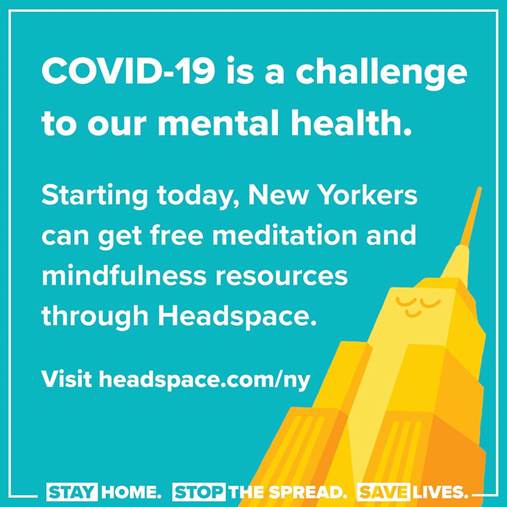-
Jennifer Close Guest Post: Taking Care of Your Mental Health

During the COVID-19 pandemic, it is understandable that many people will find themselves anxious, overwhelmed, and feeling isolated. Jennifer Close, LCSW, of Clinical Associates of the Southern Tier offers some ideas and coping mechanisms to help you weather this unpredictable, often scary, storm. Feel free to contact Jennifer or Clinical Associates by email at clinicalassoc@gmail.com or by phone at (607) 936-1771 for additional information or to schedule an appointment.
Taking Care of Your Mental Health During This Time of Social Distancing
We are living in unprecedented times, with no road map for how to navigate this new terrain. As a result, our mental wellness can be challenged as we are naturally hardwired to embrace certainty and the predictable. Routine and predictability create peace within us and soothes anxieties; we know what to expect, we’ve been here before—there’s a plan in place! Conversely, uncertainty feels scary as it generates a threat or 'alert' response in our limbic system, where our brain detects something wrong. It is like a pain, something that needs to be avoided. This is known as “fight, flight, or freeze,” which is a natural response to perceived threats. Our response to uncertainty is vital to maintaining our mental wellness during this extraordinary time.
Add to this natural hardwiring, is the fact that many of us are working from home and/or isolated from friends, families, typical routines, our favorite gathering places, and the freedom to walk about as if everything is “normal.” We are social beings and what we are experiencing is not normal. This alone can trigger anxiety, sadness, hopelessness, boredom, ambivalence, and a myriad of other negative emotions. It is important to know that, while negative, what we are experiencing emotionally IS normal. As noted, our brains are wired to desire certainty and we, as people, crave a sense of belonging and connectedness. Consequently, we may grapple with diminished mental wellness during this time of social distancing. The good news is we CAN override our brains response to uncertainty and lack of connection giving us an improved sense of wellness.
So how do we do this? Reframing and shifting our mindset can be one of the most valuable tools in getting through this difficult and uncertain time. We can recognize specific thoughts and ask ourselves, “Is there another way I can view this situation?” A small shift in the way we think about our situation can help to improve mood. An example of this is, rather than “I am stuck at home,” we can reframe this to “I get to be safe at home and spend time with my family and/or pets.” Another tool we can use is a relaxation exercise. Practicing relaxation helps to bring us out of the fight or flight mode that is often triggered with uncertainty and change. An example of relaxation is “3, 5 Breathing” - count number of breaths for one minute, then spend one minute breathing in (through the nose) for a count of 3 and out (through the mouth) for a count of 5, and then recount number of breaths for one minute. The number of breaths should be lower than when you started. Repeat as needed. A third strategy for managing our mental wellness is to create and stick to a routine. Again, our brains appreciate predictability. Creating and maintaining a routine gives our brain the reassurance it needs in order to continue functioning in a way that is healthy; there is comfort in the familiar. Get up at a reasonable time in the morning, shower, get dressed as if you were going to work or going out, take your morning “commute” if needed, by getting in the car and driving around before coming back home and starting your work. Which leads to the last suggestion, “chunk” your day. Spend a couple of hours working (if working from home), then take a break. Go for a walk, connect with friends/family virtually, or do something enjoyable for 30 minutes and then come back to work. Work for a couple more hours, take another short break. Complete a task around the house; check in with family/children that also may be at home, plan a virtual gathering with friends for later in the day, etc. Breaking up your day into manageable and predictable chunks can help the time to pass.
While we do not have a roadmap for navigating this environment, we do know that it is temporary when we look at other countries. During this time, be kind to yourself, recognize your automatic thoughts and work to reframe, reach out to friends, family, professionals, focus on the things you can control such as your mental state, be creative, and recognize that your emotional response is normal, but that you do not have to sit in that emotional space for an extended period of time with some of the tips listed above.
For more help in managing your mental wellness, give Clinical Associates of the Southern Tier a call (607-936-1771) or visit their website to make an appointment.Tell a Friend
-
Involved, Engaged, and Connected Since 1914.



